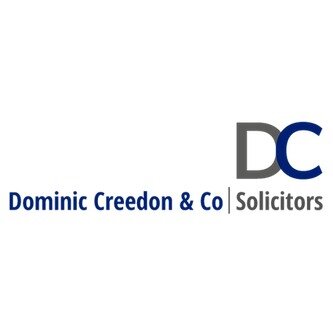Best Inheritance Law Lawyers in Cork
Share your needs with us, get contacted by law firms.
Free. Takes 2 min.
List of the best lawyers in Cork, Ireland
About Inheritance Law in Cork, Ireland
Inheritance Law in Ireland governs how a deceased person’s estate is distributed to heirs. In Cork, as elsewhere in the country, the process starts with whether there is a valid will and who is named to administer the estate. The key steps involve obtaining a grant of probate or letters of administration and then distributing assets in accordance with the will or the law of intestacy.
Local practice in Cork often involves coordination between family members, executors, and a Cork-based solicitor who handles the probate application, asset transfers, and any tax obligations. The Probate Office of the High Court oversees grants of probate and administration for Ireland, including Cork estates. The process can take several months and becomes more complex with foreign assets or disputed provisions.
Source: Courts Service outlines the probate and administration process for Ireland, including the role of the Probate Office in delivering grants of probate and letters of administration. https://www.courts.ie/probate
Source: Citizens Information provides guidance on wills, probate, and the intestacy process for residents of Cork and across Ireland. https://www.citizensinformation.ie/en/life_events/wills_and_probate/
Why You May Need a Lawyer
-
Probate after a death with a valid will. In Cork, executors usually need a grant of probate to confirm their authority to deal with the deceased’s assets, especially for property and bank accounts. A solicitor helps prepare the application, liaise with the High Court, and manage asset transfers. This avoids delays and potential disputes among beneficiaries.
-
No will exists (intestacy). If the deceased left no will, Cork residents must follow intestacy rules to determine who inherits. A solicitor guides the distribution, helps identify potential claimants, and ensures the process complies with statutory requirements. The estate may include the family home, savings, and shared interests.
-
Cross-border or foreign assets. If the deceased owned property in Cork plus assets abroad, a solicitor coordinates probate in Ireland with any applicable foreign processes. This helps avoid double administration and ensures assets are distributed consistently with Irish law and applicable foreign laws.
-
Disputes or challenges to a will. Beneficiaries or disappointed heirs in Cork may contest a will on grounds such as validity or testamentary capacity. A solicitor provides evidence gathering, advising on potential remedies, and representing you in negotiations or litigation.
-
Tax planning and relief considerations. A solicitor helps identify Capital Acquisitions Tax (CAT) implications and reliefs, such as agricultural relief, and coordinates with Revenue to prevent penalties. Proper planning can reduce tax exposure within legal allowances.
Local Laws Overview
-
Succession Act 1965 and related provisions govern the distribution of estates, the validity of wills, and intestacy rules across Ireland, including Cork. This statute forms the core framework for most probate matters.
-
Taxes Consolidation Act 1997 as regards Capital Acquisitions Tax (CAT). Revenue administers tax on inheritances and gifts, and issues guidance on thresholds and reliefs. This affects how much beneficiaries may owe when assets pass.
-
Wills and probate processes under the High Court and Probate Office. The grant of probate or administration is obtained through formal applications to the Probate Office and, in complex cases, via the High Court. Cork solicitors frequently manage these filings on behalf of executors or administrators.
Tip for residents of Cork: Start from the official guidance on wills and probate to understand your role and obligations. The guidance below helps clarify typical steps and who does what in Cork’s probate landscape.
Source: Revenue confirms that Capital Acquisitions Tax thresholds and reliefs are set by the tax authority and are updated annually. See https://www.revenue.ie/en/tax-professionals/capital-acquisitions-tax-thresholds.html
Source: Citizens Information explains the general framework for wills, probate, and intestacy which applies in Cork and throughout Ireland. See https://www.citizensinformation.ie/en/life_events/wills_and_probate/
Frequently Asked Questions
What is probate and do I need it in Cork?
Probate is the legal process confirming the validity of a will and the executor’s authority to deal with assets. In Cork, probate is generally required to transfer property, bank accounts, and other assets to beneficiaries. Without probate, executors cannot legally distribute assets. A solicitor can determine if probate is necessary in your case.
How do I apply for a grant of probate in Ireland?
Apply through the Probate Office with the original will, death certificate, and executor details. A solicitor can prepare the documentation, verify asset lists, and file the application with the High Court where required. The process can take several weeks to months depending on complexity.
When does the executor's role begin after death?
The executor’s authority begins once probate is granted or, in intestacy cases, letters of administration are issued. In Cork, these grants allow the executor or administrator to collect assets and pay debts before distribution. Delays often arise from missing documents or disputes.
Where do I file probate in Cork?
Probate applications are processed through the Probate Office of the High Court. Cork-based estates can be filed in the registry that handles Irish probate matters, with a solicitor commonly handling the submission and follow-up.
Why are CAT thresholds important for inheritance tax?
CAT thresholds determine how much tax may be due on inheritances or gifts. These thresholds are set by Revenue and are updated regularly. Beneficiaries should review current thresholds to estimate tax liabilities accurately.
Can I challenge a will in Cork?
Yes, will challenges can be pursued on grounds such as lack of testamentary capacity or undue influence. A Cork solicitor can guide you through evidence collection and litigation options. Court action should be considered carefully due to time and cost implications.
Should I hire a solicitor for probate in Cork?
Hiring a solicitor helps ensure the probate process complies with Irish law and reduces risk of delays. A solicitor can prepare documents, coordinate with tax authorities, and manage communications with beneficiaries. For many estates, professional guidance is worthwhile.
Do I need a will to avoid intestacy?
Yes. A valid will directs asset distribution and can reduce disputes. Without a will, the law of intestacy governs shares, which may not reflect your wishes. Creating a clear, updated will is advisable for Cork residents.
Is intestacy different in Cork compared to other counties?
No. Intestacy rules are set by national law and apply consistently across Ireland, including Cork. Local practice may vary in administrative steps, but the underlying rules are the same nationwide.
How much does probate typically cost in Cork?
Costs vary with estate size and complexity. Legal fees, court fees, and disbursements for appraisals may apply. A solicitor can provide a written estimate after reviewing the estate details.
How long does probate take in Cork?
Typical timelines range from 6 to 12 months for straightforward estates. Complications such as missing documents, tax issues, or disputes can extend this period by several months. A solicitor can offer a more precise timeline after reviewing the case.
What’s the difference between probate and administration?
Probate confirms the will and appoints executors. Letters of administration appoints an administrator when there is no valid will. The steps are similar, but the parties involved and the underlying authority differ. Cork estates follow this distinction in practice.
Additional Resources
-
Citizens Information - Provides official guidance on wills, probate, and intestacy in Ireland. Useful for understanding eligibility, timelines, and what to expect when you work with a solicitor.
https://www.citizensinformation.ie/en/life_events/wills_and_probate/
-
Revenue Commissioners - Administers Capital Acquisitions Tax (CAT), thresholds, reliefs, and filings for inheritances and gifts. Check current figures and guidance before planning estate transfers.
https://www.revenue.ie/en/tax-professionals/capital-acquisitions-tax-thresholds.html
-
Courts Service - Information on probate, letters of administration, and court procedures for estate matters in Ireland. It explains how to obtain grants of probate or administration.
Next Steps
-
Gather key documents Collect the will (if any), death certificate, property deeds, bank statements, and list of debts. Do this within 1-2 weeks to speed up the process.
-
Identify the executors or administrators Confirm who is named in the will or who will administer the estate if there is no will. Decide upfront if you need independent legal help.
-
Consult a Cork inheritance lawyer Search for a solicitor with probate experience in Cork. Schedule an initial consultation to discuss eligibility, costs, and timelines. Aim to meet at least 2 firms within 2-3 weeks.
-
Obtain a detailed engagement plan After selecting a solicitor, obtain a written plan outlining steps, required documents, and fee estimates. Expect a documented timeline covering probate or administration tasks.
-
Prepare and file the probate or administration application Your solicitor will compile the necessary forms, valuations, and sworn statements. Filing typically takes place within 2-6 weeks after documents are ready.
-
Receive the grant and administer the estate Once probate or administration is granted, collect assets, settle debts, and distribute the estate to beneficiaries. Expect several months for full completion, depending on complexity.
Lawzana helps you find the best lawyers and law firms in Cork through a curated and pre-screened list of qualified legal professionals. Our platform offers rankings and detailed profiles of attorneys and law firms, allowing you to compare based on practice areas, including Inheritance Law, experience, and client feedback.
Each profile includes a description of the firm's areas of practice, client reviews, team members and partners, year of establishment, spoken languages, office locations, contact information, social media presence, and any published articles or resources. Most firms on our platform speak English and are experienced in both local and international legal matters.
Get a quote from top-rated law firms in Cork, Ireland — quickly, securely, and without unnecessary hassle.
Disclaimer:
The information provided on this page is for general informational purposes only and does not constitute legal advice. While we strive to ensure the accuracy and relevance of the content, legal information may change over time, and interpretations of the law can vary. You should always consult with a qualified legal professional for advice specific to your situation.
We disclaim all liability for actions taken or not taken based on the content of this page. If you believe any information is incorrect or outdated, please contact us, and we will review and update it where appropriate.















